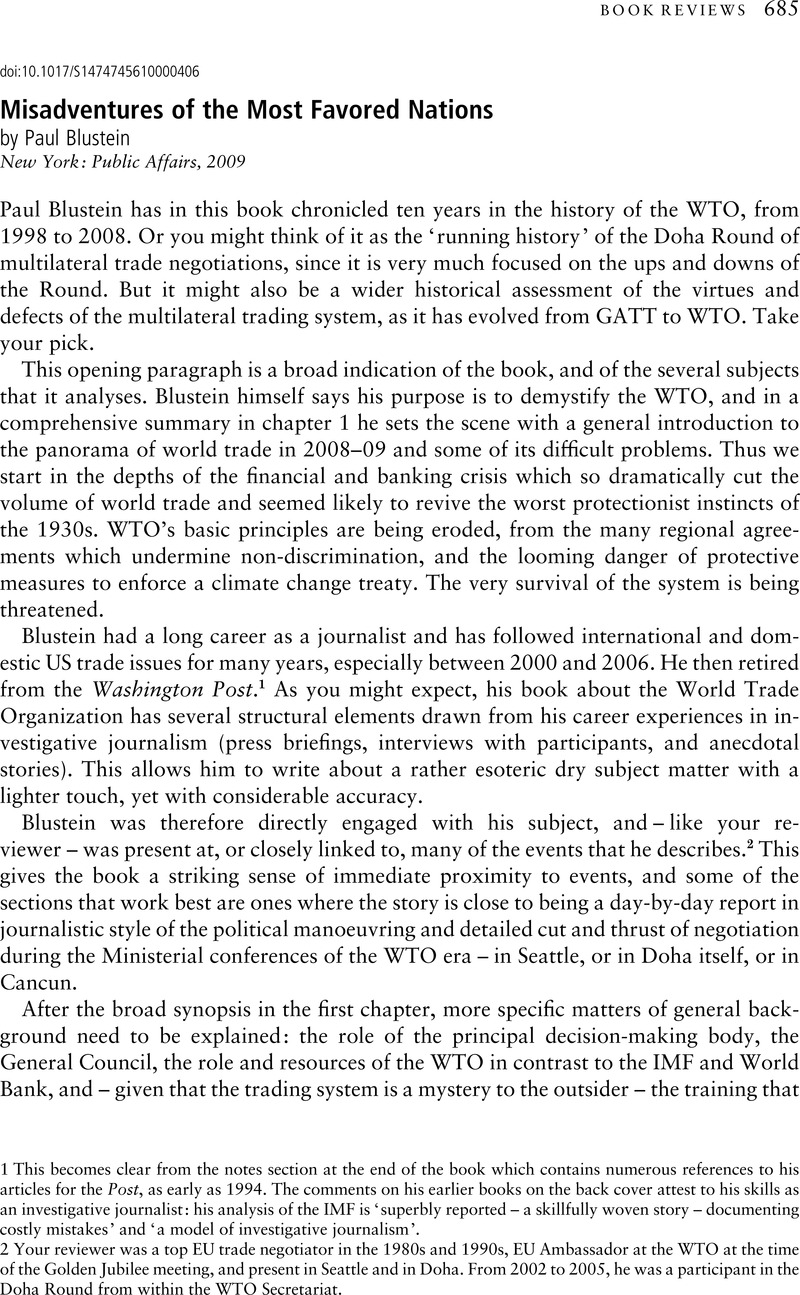No CrossRef data available.
Published online by Cambridge University Press: 01 October 2010

1 This becomes clear from the notes section at the end of the book which contains numerous references to his articles for the Post, as early as 1994. The comments on his earlier books on the back cover attest to his skills as an investigative journalist: his analysis of the IMF is ‘superbly reported – a skillfully woven story – documenting costly mistakes’ and ‘a model of investigative journalism’.
2 Your reviewer was a top EU trade negotiator in the 1980s and 1990s, EU Ambassador at the WTO at the time of the Golden Jubilee meeting, and present in Seattle and in Doha. From 2002 to 2005, he was a participant in the Doha Round from within the WTO Secretariat.
3 See page 68: Europeans wanted the ‘Singapore issues’, developing countries were bitterly opposed; farm exporters wanted access to third markets and elimination of some subsidies, others in Europe and Asia opposed that; the USA wanted labour rights to be included, which was anathema to everyone else; and developing countries wanted to reopen the terms of the Uruguay Round deal, done in 1993.
4 There are extended character pictures of both leaders, and their backgrounds, personal and political.
5 Players such as Tim Groser, an Ambassador and chair of the agriculture group; the so-called Five Interested Parties who could not reach a rapid agreement, to the irritation of other players; Zoellick himself, Kamal Nath, the Indian Minister, and Supachai, the WTO Director General.
6 The chapter entitled ‘His Holiness Pope Bob’ is one example among many of the intensive briefing that a well-connected American journalist can obtain in Washington. There are many more American interviewees (see page 298–299) than there are from any other major participant. But that is rather normal, and the section giving sources for the text (page 302 on) shows that Blustein frequently used European sources, such as Reuters, The Financial Times and the ICTSD publication Bridges, as well as American journalists and publications.
7 Although it is strictly outside the purview of the book I am tempted to comment: no other country has placed elements of its trade policy (checks on imports of fruit and foodstuffs) and of its tourism and higher education efforts (visas for students and visitors) under a blanket of homeland security.